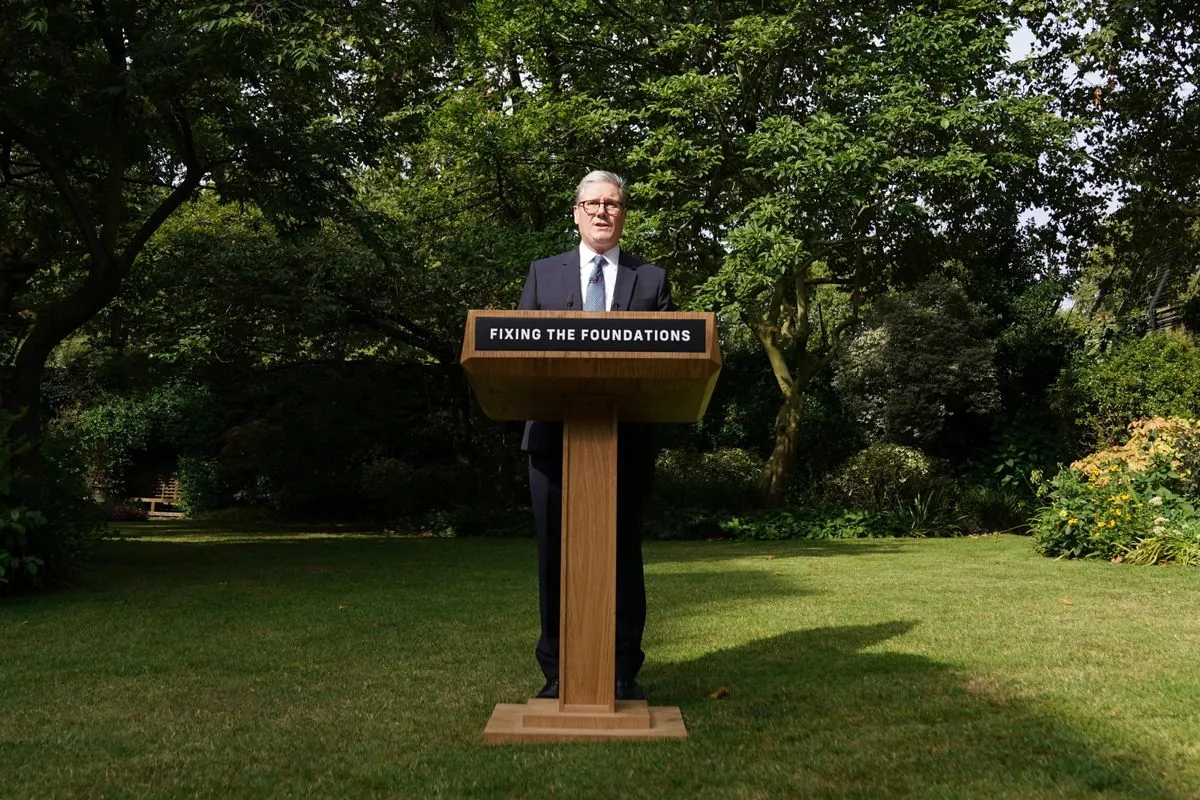In a significant address at the Downing Street rose garden, Prime Minister Keir Starmer outlined his vision for overhauling Britain, acknowledging the necessity of unpopular decisions to address the nation's multifaceted challenges. The location, historically used for press conferences since the 1930s, served as a poignant backdrop for Starmer's candid message to the British public.
Starmer, who assumed office following a decisive electoral victory in July 2024, emphasized the need for transparency regarding the difficulties ahead. He stated, "We have inherited not just an economic black hole but a societal black hole, and that is why we have to take action and do things differently."
The Prime Minister highlighted the economic hurdles facing the nation, including a substantial budget deficit of £22 billion. This financial predicament has prompted considerations of potential tax increases on affluent individuals. Starmer remarked, "Those with the broader shoulders should bear the heavier burden," signaling a possible shift in fiscal policy.
The UK's economic landscape presents significant challenges. As of July 2023, public sector net debt reached £2.3 trillion, equivalent to 98.5% of GDP. The tax burden is projected to hit 37.7% of GDP by 2027-28, the highest level since the 1940s. These figures underscore the fiscal constraints facing the new government.
Starmer also addressed the recent anti-migrant riots, viewing them as symptomatic of deeper societal divisions. He criticized the previous Conservative government's approach, stating, "Their focus on the 'snake oil' of populism had widened divisions in society which would take time to heal."
The Prime Minister, drawing on his experience as Director of Public Prosecutions from 2008 to 2013, expressed concern over the limited prison capacity. As of March 2023, the UK prison population stood at 82,700, nearing operational limits. Starmer stated, "Not having enough prison places is about as fundamental a failure as you can get."
"Frankly, things will get worse before we get better."
The opposition Conservative Party has criticized Starmer's portrayal of the fiscal situation. Kemi Badenoch, the party's policy chief for housing and communities, described the speech as based on a "dishonest analysis," suggesting that Starmer is "managing voters' expectations for a decade of decline."
Despite the challenges, Starmer remains committed to his pre-election pledge not to raise certain taxes on working people. However, he emphasized the need for short-term sacrifices to achieve long-term improvements. The upcoming fiscal statement on October 30, 2024, is expected to provide more details on the government's economic strategy.
As Britain faces these economic and social challenges, Starmer's administration must navigate a complex landscape. With inflation having peaked at 11.1% in October 2022 and the Bank of England targeting a 2% rate, economic stability remains a priority. The government's approach to these issues will likely shape the UK's trajectory in the coming years.
